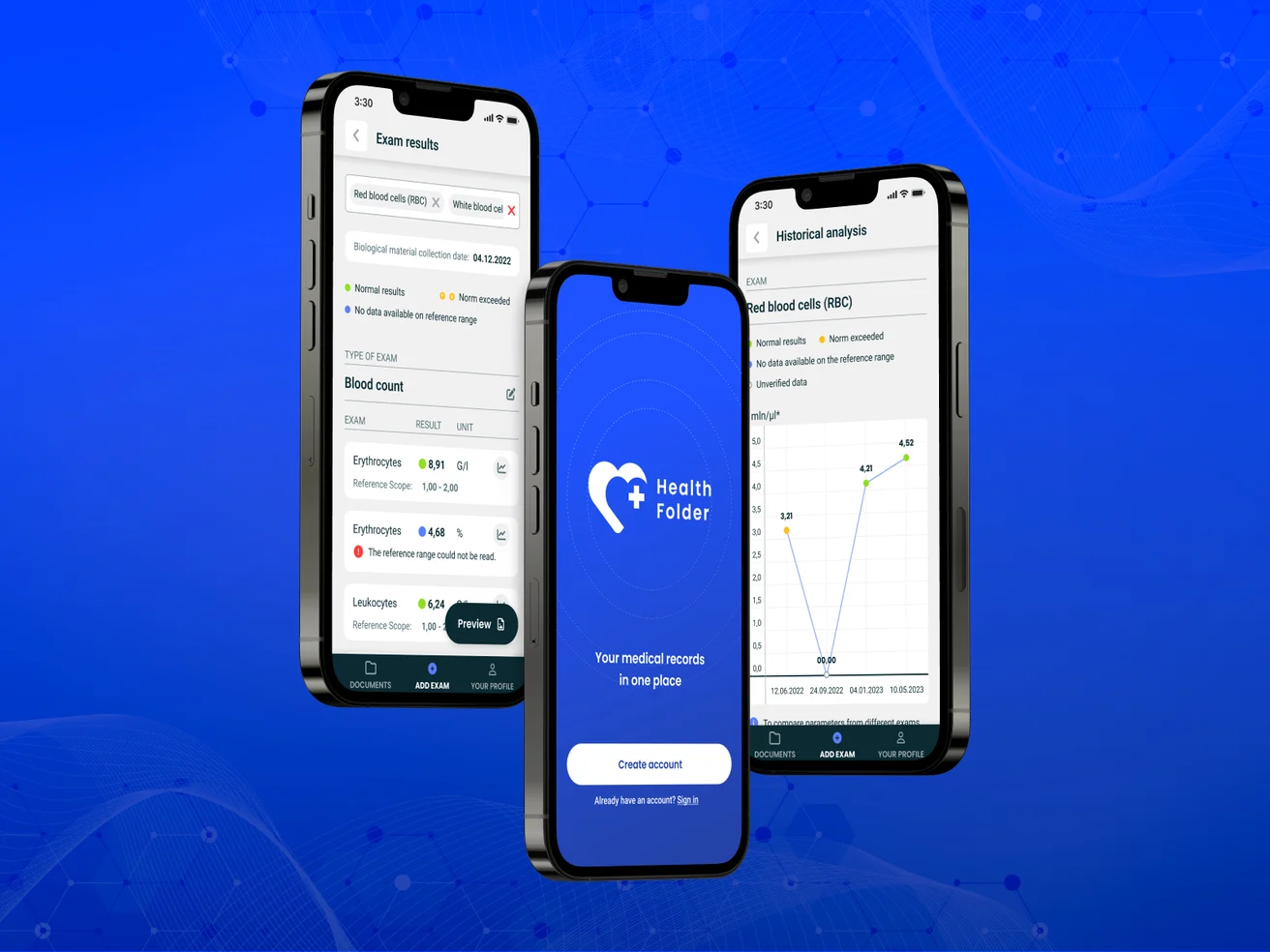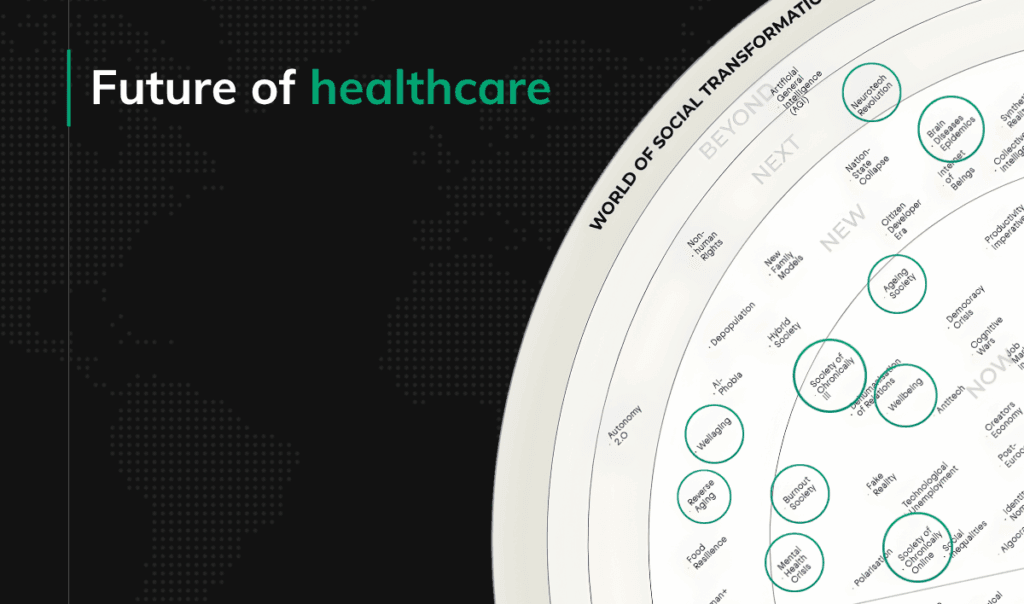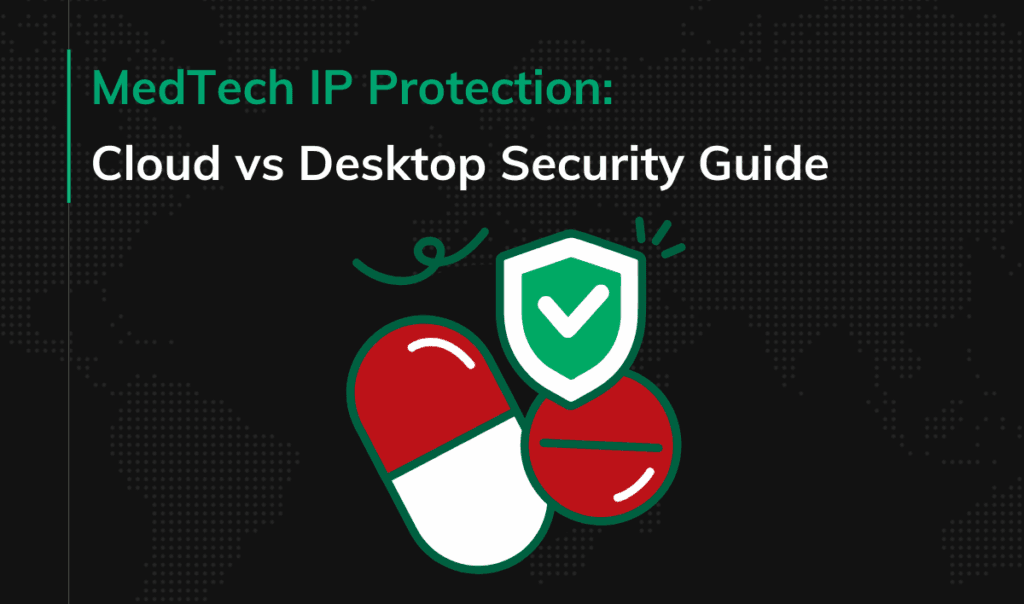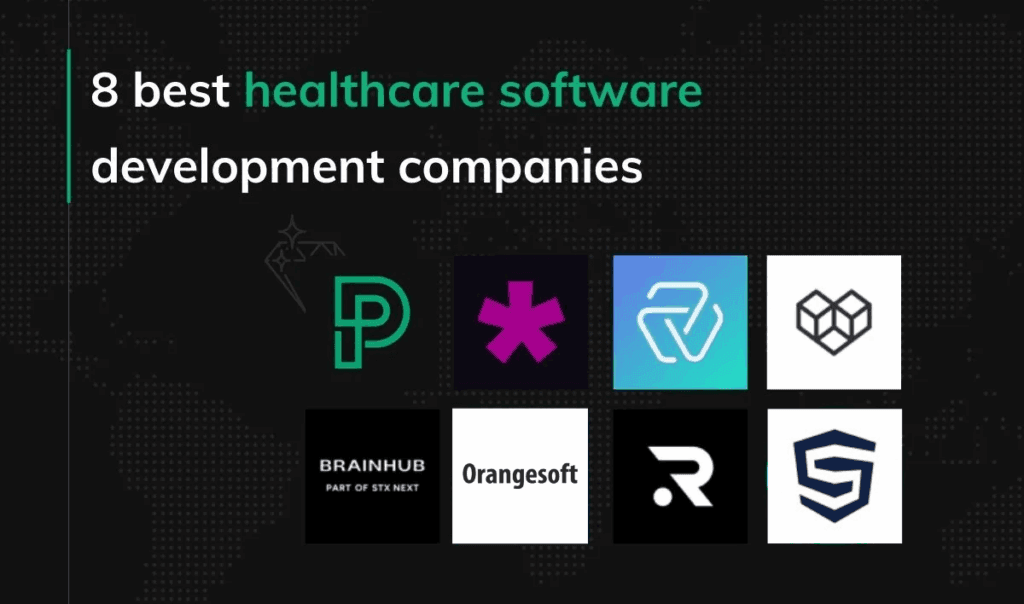Patient engagement software company
Enhance patient care with convenience through our custom Patient Engagement Apps.
Experts in building HIPAA-compliant patient engagement apps
HIPAA & Data Security
We prioritize your patients' privacy and security, adhering to HIPAA standards and safeguarding their health information with the newest cybersecurity solutions.
Patient-friendly solutions
Our patient engagement apps are crafted with an intuitive and accessible interface, ensuring effortless navigation and a positive experience for every patient.
Interoperability & IoT
We seamlessly integrate our patient engagement apps with healthcare systems and wearable tech, enabling real-time health monitoring and efficient data exchange.
Scalability & Growth
We build our apps with scalability in mind, ensuring that they can adapt and expand alongside your evolving healthcare needs while maintaining performance and reliability.
Health Folder: Your AI-based digital medical documentation folder
Discover how Health Folder revolutionizes medical documentation management with its AI-powered mobile app built using low code.
Read the case study
Our digital health software development process
This is how we work
Deliver & Scale
- Product Development
- DevOps Architecture
- Continuous User Feedback & Delivery
Patient Engagement FAQ
Everything you need to know about patient engagement to decide if you need a custom patient engagement app development partner.
What is patient engagement in healthcare?
Patient engagement is the active involvement of patients in their own healthcare decisions and care management. It is a crucial aspect of healthcare that empowers patients to take an active role in their well-being and improve their overall health outcomes.
What are the benefits of patient engagement?
Patient engagement offers a multitude of benefits for both patients and healthcare providers. Here are some of the key benefits:
- Improved health outcomes: Engaged patients are more likely to adhere to treatment plans, follow medication instructions, and adopt healthy lifestyle habits, leading to better health outcomes and reduced healthcare costs.
- Enhanced patient satisfaction: Engaging patients fosters trust and communication, which leads to increased satisfaction with their healthcare experience.
- Reduced healthcare costs: By preventing complications, unnecessary hospitalizations, and emergency room visits, patient engagement can significantly reduce healthcare costs.
- Strengthened patient-provider relationships: Patient engagement fosters open dialogue and collaboration between patients and providers, leading to stronger patient-provider relationships.
Why is patient engagement important?
Patient engagement is essential for improving healthcare quality, reducing costs, and enhancing patient satisfaction. In a rapidly changing healthcare landscape, patient empowerment and active involvement are becoming increasingly important for achieving optimal health outcomes.
How to improve patient engagement?
Implementing effective patient engagement strategies can significantly improve patient involvement in their healthcare. Here are some key steps to enhance patient engagement:
- Educate patients: Provide clear and easily understandable information about their condition, treatment plans, and self-management strategies.
- Promote communication: Encourage open communication between patients and providers, fostering a dialogue about treatment goals, concerns, and expectations.
- Personalize care: Tailor the healthcare experience to each patient's individual needs, preferences, and cultural background.
- Utilize technology: Employ patient engagement tools and platforms to provide convenient access to health information, appointment reminders, and secure communication channels.
How to devise a patient engagement strategy?
Developing a comprehensive patient engagement strategy involves understanding your patient population, defining engagement goals, and selecting appropriate engagement strategies. Here's a step-by-step guide:
- Assess patient needs and preferences: Conduct surveys, focus groups, or interviews to understand patient needs, preferences, and barriers to engagement.
- Define engagement goals: Set clear and measurable goals for patient engagement, such as increased medication adherence, improved health outcomes, or reduced healthcare costs.
- Select appropriate engagement methods: Choose methods that align with your goals and patient needs. Consider methods such as patient education programs, patient portals, telemedicine, and mobile health apps.
- Implement and evaluate: Implement the chosen methods and regularly evaluate their effectiveness using data and feedback from patients and providers.
What are the most popular patient engagement methods?
A variety of patient engagement methods can be effective in promoting active patient involvement. Some of the most popular include:
- Patient education programs: Provide comprehensive information about health conditions, treatment options, and self-management strategies.
- Personalized care plans: Develop individualized treatment plans that address each patient's unique needs and preferences.
- Patient portals: Offer secure online access to patient records, appointment reminders, and secure messaging with providers.
- Telemedicine: Provide remote consultations and monitoring for patients who may have difficulty accessing traditional healthcare settings.
- Mobile health apps: Utilize mobile apps to track vital signs, manage medication schedules, receive health reminders, and connect with support groups.
What are the most popular digital patient engagement tools?
Numerous digital patient engagement tools are available to support healthcare providers and enhance patient engagement. Some of the most popular include:
- Electronic health records (EHRs): Integrated EHRs with patient portals provide patients with secure access to their medical information.
- Patient engagement platforms: These platforms offer comprehensive tools for education, communication, and self-management support.
- Mobile health apps: Dedicated mobile apps cater to specific health conditions or patient needs, providing personalized tools and reminders.
- Social media platforms: Healthcare providers can utilize social media to connect with patients, share educational content, and address health concerns.
A tremendous value that Pragmatic Coders brings to the table is that when we submit a user story, they don’t just take it and start working on it. They conduct a comprehensive internal review of the user story and come back with questions that push us to think of aspects that we didn’t consider. They really challenge us so that we don’t miss any requirements or make assumptions in our user stories.

Our other healthcare software services
Custom Patient Portal Software Development Services Company
Learn moreMedical Practice Management Software Development
Learn moreLet's talk
We’ve got answers on anything connected with software development.
Message us
Feel free to reach out using the form below, and we’ll get back to you as soon as possible.
Schedule a meeting
You can also schedule an online meeting with Wojciech, our Senior Business Consultant.


founders who contacted us wanted
to work with our team.
Check our digital health-related articles
Newsletter
You are just one click away from receiving our 1-min business newsletter. Get insights on product management, product design, Agile, fintech, digital health, and AI.






